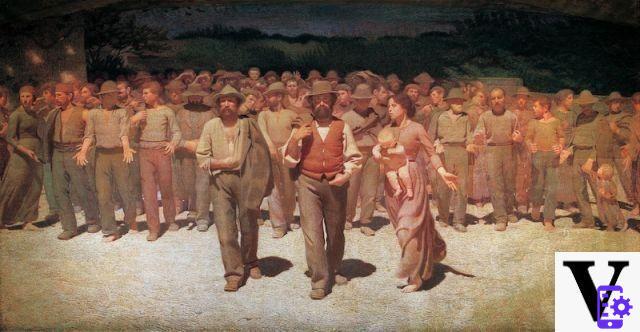To start, Happy May Day to all workers from the Techprincess editorial team.
As happens with many anniversaries that we now celebrate with a certain inertia, it is easy that many of us do not know - or have forgotten - the reasons that led to the birth of the Labor Day.
So let's retrace the origins and history of one of the most heartfelt holidays in many countries.
May XNUMXst: when it was born and why
The May Day Festival is not just a day that sees the suspension of many work activities. Even if today, with the multiplication of trades linked to digital and with the opening hours of shops ever wider, this is less and less true.
Labor Day (or Labor Day) has a profound historical and political sense that should not be forgotten.
The origins: Chicago, May 1, 1886
Going back to the origins of Labor Day makes us understand immediately why the struggles for workers' rights are celebrated on May XNUMXst.
The earliest date to keep in mind is May 1, 1867. That day in Chicago the first law came into effect that reduced the daily working hours to eight.
The protests for the spread of the law are, initially, timid and not too organized or coordinated. Until, on May 1, 1886, the Federation of Organized Trades and Labor Unions stipulates that that must be the day on which the law is extended to the entire American territory. Conversely, there would have been an indefinite general strike.
The protest was joined by 12.000 factories and more than 400.000 workers, of which 80.000 in Chicago alone. In the city of Illinois there will be four hard days of clashes, with an unprecedented number of victims from both the demonstrators and the police.
On May 4, at least seven agents were killed by a group of anarchists, who went down in history for organizing the first bomb attack in the United States.

Paris, 1889
The facts of Chicago soon go around the world. But only in the 1889, at the International Congress in Paris which kicks off the Second International, vThe date of May XNUMXst is officially declared as International Workers' Day.
The First of May in the world
After the Parisian proclamation, the date was soon adopted by many countries from every corner of the planet, and today there are almost one hundred nations celebrating Labor Day.
But not all of May Day: the United States, Australia and Canada, for example, commemorate the anniversary on the first Monday in September.
Labor Day in Italy
The anniversary has existed in Italy since 1991, even if a popular uprising had already broken out in Livorno in 1888 once the facts in Chicago were known.
During the Fascist period, starting from 1924, the date was brought forward to 21 April, coinciding with the birth of Rome, and became a public holiday. The original date of 1 May was definitively restored in 1945. And in 1955 Pope Pius XII instituted the feast of Saint Joseph the worker, in order to ideally extend the anniversary to all Catholic workers.

The massacre of Portella della Ginestra
The most tragic May Day in the history of Italy is certainly that of 1947, when the bandit Salvatore Giuliano and his men opened fire on the demonstrators in Portella della Ginestra, in the province of Palermo, killing fourteen people.
The role of the secret services in the affair has never been clarified. Which according to some would have wanted to discredit Giuliano in the eyes of the population by bribing some members of his gang.
The Concertone
May Day in Italy has a much happier hue since 1990, the year in which the confederate unions (CGIL, CISL and UIL) together with the municipality of Rome decided to organize the first concert in San Giovanni di Laterano.
Since then, the traditional appointment has taken the name of Concertone, attracting (obviously excluding these last two years) tens of thousands of people in the audience and hundreds of singers and musical groups, who together with artists and actors cover the whole day, faithfully followed from the Rai cameras.
Discount First of May
First of May
- Fitzgerald, Francis Scott (Author)
May Day and workers' rights
Renewing our best wishes for your happy May Day (and hoping, with this short article, to have provided me with some more information), we will be careful not to add considerations that unfortunately would be all too obvious. On how far there is still to go in order to have equal opportunities for access to work at a social, sexual, geographical level, more security, and contracts that guarantee greater employment stability.
Work is dignity, and no one has it to a lesser extent than others. And then, as Gustave Flaubert said with wisdom and irony, “After all, work is the best way to make life pass”.




















![[Review] Samsung Powerbot VR7000: the robot vacuum cleaner from Star Wars](/images/posts/6bc44de38605b5c0fa12661febb1f8af-0.jpg)





